Where Do We Go From Here? Mapping Climate Justice Frontlines in Vancouver
What are the frontlines of climate justice in the Vancouver area, and how is climate change embedded in other systemic crises and oppressions? What are the bridges that need to be built locally – among people, movements, and issues – in order to ensure that justice is centered in all climate action?
Join us for a discussion among the Climate Justice Study Collective, a group of community leaders, organizers, youth activists, and Indigenous Elders from the Greater Vancouver area who have shared their thinking on these questions over the past five months. The discussion will be moderated by UBC Professors Naomi Klein and Rafi Arefin.
About the participants
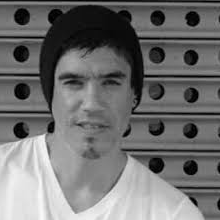 Nicolas Crier (he/him, 44, Cree) is a Peer Co-Lead, Writer and Research Assistant (Tech 2) with the UBC Transformative Health & Justice Research Cluster. Now in its fourth successful year as an “established” research cohort, this highly innovative group of academics, elders, and community members with Lived Experience are quietly helping to guide bold new conversations on how we as a society can change the outcomes of urgent health and justice determinants such as penal incarceration, social stigmatization and the criminalization of Indigenous Drug Users. In all these efforts, Nicolas realises that Climate Change Justice is what is going to continue to make them possible for him at all.
Nicolas Crier (he/him, 44, Cree) is a Peer Co-Lead, Writer and Research Assistant (Tech 2) with the UBC Transformative Health & Justice Research Cluster. Now in its fourth successful year as an “established” research cohort, this highly innovative group of academics, elders, and community members with Lived Experience are quietly helping to guide bold new conversations on how we as a society can change the outcomes of urgent health and justice determinants such as penal incarceration, social stigmatization and the criminalization of Indigenous Drug Users. In all these efforts, Nicolas realises that Climate Change Justice is what is going to continue to make them possible for him at all.
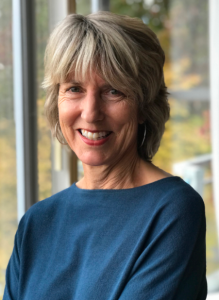 Cheryl Cameron is a veteran climate organizer, recently resigned from her role as Director of Organizing for Dogwood Initiative. She is well connected in the climate movement, and has taken part in designing and implementing a wide variety of politically oriented campaigns aiming to reign in fossil fuel extraction, ranging from ending fossil fuel subsidies to electoral campaign finance reform. In her youth, Cheryl spent five seasons working on a commercial salmon seine boat on the North Coast, the decline of which incited her passion for environmental activism. Cheryl has 3 adult children, two of whom are professionals focused on climate justice – one as a policy analyst with IISD, another a physicist working at General Fusion working toward longer term clean energy sources.
Cheryl Cameron is a veteran climate organizer, recently resigned from her role as Director of Organizing for Dogwood Initiative. She is well connected in the climate movement, and has taken part in designing and implementing a wide variety of politically oriented campaigns aiming to reign in fossil fuel extraction, ranging from ending fossil fuel subsidies to electoral campaign finance reform. In her youth, Cheryl spent five seasons working on a commercial salmon seine boat on the North Coast, the decline of which incited her passion for environmental activism. Cheryl has 3 adult children, two of whom are professionals focused on climate justice – one as a policy analyst with IISD, another a physicist working at General Fusion working toward longer term clean energy sources.
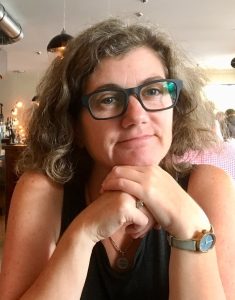 Tara Ehrcke is an educator, teaching secondary math in the Lekwungen speaking territories (Greater Victoria) and facilitating union workshops across the province to colleagues in the BC Teachers’ Federation. Tara is currently a member of the BCTF Committee for Action on Social Justice, as well as the BC Federation of Labour Climate Justice & Jobs Committee. A life long trade union activist, Tara is excited to work with others to strengthen relationships between labour and the community so that we can collectively build the power to change the world.
Tara Ehrcke is an educator, teaching secondary math in the Lekwungen speaking territories (Greater Victoria) and facilitating union workshops across the province to colleagues in the BC Teachers’ Federation. Tara is currently a member of the BCTF Committee for Action on Social Justice, as well as the BC Federation of Labour Climate Justice & Jobs Committee. A life long trade union activist, Tara is excited to work with others to strengthen relationships between labour and the community so that we can collectively build the power to change the world.
 Zoha Faisal is a teenage climate and community organizer residing on the unceded lands of the Katzi, Semiahmoo, and Kwantlen Nations, so-called “Surrey, B.C.” She is a co-founder of Climate Recentered, a local movement of BIPOC working to build long-term mutual aid projects and communities of care in order to grow climate resilience and action, with racialized and
Zoha Faisal is a teenage climate and community organizer residing on the unceded lands of the Katzi, Semiahmoo, and Kwantlen Nations, so-called “Surrey, B.C.” She is a co-founder of Climate Recentered, a local movement of BIPOC working to build long-term mutual aid projects and communities of care in order to grow climate resilience and action, with racialized and
marginalized people leading the charge. She is also a core organizer with Sustainabiliteens, a grassroots organization bringing teenagers together from across the Lower Mainland to organize mass mobilizations and campaigns targeting those responsible for climate injustice.
 Janelle Lapointe is an Afro-Indigenous climate justice and Indigenous rights activist from Stellat’en First Nation, currently the interim Director of Public Engagement and Mobilization at the David Suzuki Foundation and a guest on Sḵwx̱wú7mesh (Squamish), Səl̓ílwətaʔ/Selilwitulh (Tsleil-Waututh) and xʷməθkʷəy̓əm (Musqueam) territories. She leans on her lived experience growing up on her small reserve in Northern British Columbia to ensure that intersectionality is at the forefront of environmental narratives, to build power and help others see their stake in fighting back against the status quo. She has spent the last few years Frontloading* a new mass movement organization, to unite everyday people from Canada, Quebec and many Indigenous Nations across the lands to demand a Green New Deal that takes power from the hands of the billionaires and returns it to us all. (Easy stuff!)
Janelle Lapointe is an Afro-Indigenous climate justice and Indigenous rights activist from Stellat’en First Nation, currently the interim Director of Public Engagement and Mobilization at the David Suzuki Foundation and a guest on Sḵwx̱wú7mesh (Squamish), Səl̓ílwətaʔ/Selilwitulh (Tsleil-Waututh) and xʷməθkʷəy̓əm (Musqueam) territories. She leans on her lived experience growing up on her small reserve in Northern British Columbia to ensure that intersectionality is at the forefront of environmental narratives, to build power and help others see their stake in fighting back against the status quo. She has spent the last few years Frontloading* a new mass movement organization, to unite everyday people from Canada, Quebec and many Indigenous Nations across the lands to demand a Green New Deal that takes power from the hands of the billionaires and returns it to us all. (Easy stuff!)
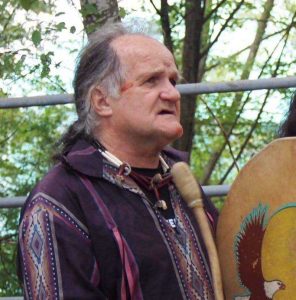 Jim Leyden is currently the elder at Kwekwecnewtxw, the Coast Salish watchhouse on Burnaby Mountain as part of his resistance to the TMX Pipeline. He is also involved on a volunteer basis with the setting up of an Aboriginal Council at Oppenheimer Park in the DTES in an effort to support and find solutions for Indigenous people.
Jim Leyden is currently the elder at Kwekwecnewtxw, the Coast Salish watchhouse on Burnaby Mountain as part of his resistance to the TMX Pipeline. He is also involved on a volunteer basis with the setting up of an Aboriginal Council at Oppenheimer Park in the DTES in an effort to support and find solutions for Indigenous people.
Robert Nahanee is a Squamish Nation Elder, and has supported Jim Leyden in the watch house, with the nation to address the issue of the clear cutting of the forest in Squamish traditional territory.
Robert Patterson is a lawyer and tenant advocate with the Tenant Resource & Advisory Centre (TRAC). The focus of his work is on protecting tenants’ right to safe, adequate, and accessible housing, primarily through direct legal representation at the Residential Tenancy Branch and BC Supreme Court, as well as through systemic advocacy to different levels of government about housing issues that affect residential tenants. TRAC’s recent work with the UBC Centre for Climate Justice has turned our attention towards the intersection of the climate crisis and the housing crisis.
 Naomi Klein is Co-Director of the Centre for Climate Justice, and Associate Professor of Climate Justice at the University of British Columbia. Her research and teaching take place at the intersection of crisis and political transformation, as in her 2007 book, The Shock Doctrine: The Rise of Disaster Capitalism. She also uses this lens to explore the aftermath of disasters linked to climate breakdown, including Hurricane Maria in Puerto Rico (2017) and the Camp Fire in Northern California in (2018). Prior to joining UBC, she was the inaugural Gloria Steinem Endowed Chair in Media, Culture and Feminist Studies at Rutgers University, from 2018 – 2021, and she co-founded The Leap.
Naomi Klein is Co-Director of the Centre for Climate Justice, and Associate Professor of Climate Justice at the University of British Columbia. Her research and teaching take place at the intersection of crisis and political transformation, as in her 2007 book, The Shock Doctrine: The Rise of Disaster Capitalism. She also uses this lens to explore the aftermath of disasters linked to climate breakdown, including Hurricane Maria in Puerto Rico (2017) and the Camp Fire in Northern California in (2018). Prior to joining UBC, she was the inaugural Gloria Steinem Endowed Chair in Media, Culture and Feminist Studies at Rutgers University, from 2018 – 2021, and she co-founded The Leap.
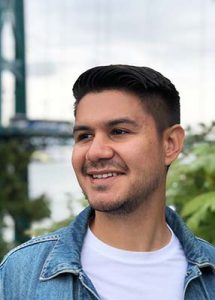 Mohammed Rafi Arefin is an Assistant Professor in the Department of Geography at the University of British Columbia. Drawing on urban political ecology and environmental justice, science and technology studies, and discard studies, his research and teaching are focused on urban environmental politics with a specific focus on waste and sanitation. His work on the historical development and contemporary politics of Cairo’s solid waste and sewage systems has appeared in the journals Antipode, Progress in Human Geography, and the Annals of the American Association of Geographers. He is currently working on a new project tracing how the relationship between waste, health, and urban governance is shifting in light of developments in the field of wastewater-based epidemiology.
Mohammed Rafi Arefin is an Assistant Professor in the Department of Geography at the University of British Columbia. Drawing on urban political ecology and environmental justice, science and technology studies, and discard studies, his research and teaching are focused on urban environmental politics with a specific focus on waste and sanitation. His work on the historical development and contemporary politics of Cairo’s solid waste and sewage systems has appeared in the journals Antipode, Progress in Human Geography, and the Annals of the American Association of Geographers. He is currently working on a new project tracing how the relationship between waste, health, and urban governance is shifting in light of developments in the field of wastewater-based epidemiology.
